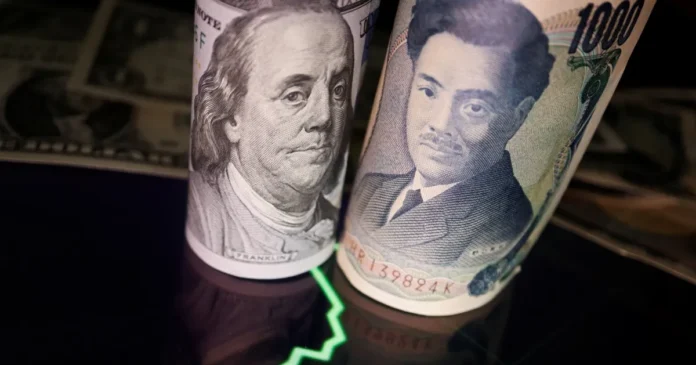Dollar vs. Yen Following Another North Korean Missile Test
The financial markets are reacting to geopolitical tensions as North Korea conducts yet another missile test, impacting currency exchanges, particularly between the US dollar and the Japanese yen. This development underscores the broader implications of geopolitical events on global financial markets and currency valuation.
Impact of the Missile Test on Currency Markets
North Korea’s recent missile test has intensified global geopolitical uncertainties, influencing currency markets and leading to fluctuations between the US dollar (USD) and the Japanese yen (JPY). Here’s how the situation is unfolding:
Market Reaction: The missile test has caused immediate reactions in the forex markets, with investors seeking safe-haven assets such as the yen. Typically, in times of heightened geopolitical risk, the yen appreciates as it is considered a stable and secure currency. Conversely, the dollar has seen varied responses depending on market sentiment and investor behavior.
Yen Strengthening: As tensions rise, the yen often strengthens against major currencies, including the dollar, due to its safe-haven status. This strengthening reflects investors’ flight to stability and their preference for currencies perceived as less risky in times of crisis.
Dollar Fluctuations: The US dollar’s performance against the yen is influenced by a combination of factors, including economic data, Federal Reserve policies, and geopolitical events. The missile test adds an element of uncertainty that can lead to volatility in the dollar’s value.
Geopolitical Tensions and Financial Markets
Geopolitical tensions, such as those arising from North Korea’s missile tests, have a significant impact on global financial markets. Key factors include:
Investor Sentiment: Geopolitical events often shift investor sentiment, leading to increased volatility in currency markets. In response to North Korea’s actions, investors may move assets to currencies and commodities perceived as safer, impacting exchange rates.
Economic Implications: Heightened geopolitical risk can influence economic policies and international trade. Uncertainty in the Asia-Pacific region may affect trade dynamics, investment flows, and economic stability, further influencing currency valuations.
Central Bank Responses: Central banks, including the Federal Reserve and the Bank of Japan, may adjust their monetary policies in response to geopolitical events. Changes in interest rates or other policy measures can affect currency strength and market stability.
Recent Market Trends
The recent missile test has contributed to the following trends in the currency markets:
Increased Yen Demand: As a response to the missile test, demand for the yen has increased, leading to its appreciation against the dollar. This trend reflects investors’ cautious approach and preference for the yen as a safe-haven asset.
Dollar Volatility: The dollar’s value against the yen has experienced volatility, influenced by geopolitical developments and market reactions. This volatility can create opportunities and risks for traders and investors.
Market Uncertainty: The ongoing geopolitical tensions contribute to market uncertainty, impacting trading strategies and investment decisions. Investors closely monitor developments in North Korea and their potential effects on global markets.
Future Outlook
The outlook for the dollar-yen exchange rate will depend on several factors:
Geopolitical Developments: Continued geopolitical tensions and potential further missile tests by North Korea could further impact currency markets. Monitoring diplomatic efforts and international responses will be crucial in assessing future trends.
Economic Indicators: Economic data from both the US and Japan, including inflation rates, employment figures, and economic growth, will influence currency valuations. Investors will keep an eye on these indicators alongside geopolitical developments.
Central Bank Policies: Decisions by the Federal Reserve and the Bank of Japan regarding monetary policy will play a role in shaping the dollar-yen exchange rate. Policy adjustments in response to economic and geopolitical conditions could impact currency strength.
The recent North Korean missile test has added a layer of complexity to the currency markets, particularly affecting the exchange rate between the US dollar and the Japanese yen. Geopolitical tensions and investor reactions continue to drive volatility, with the yen strengthening as a safe-haven currency. As the situation evolves, monitoring geopolitical developments, economic indicators, and central bank policies will be essential for understanding future trends in the currency markets.

